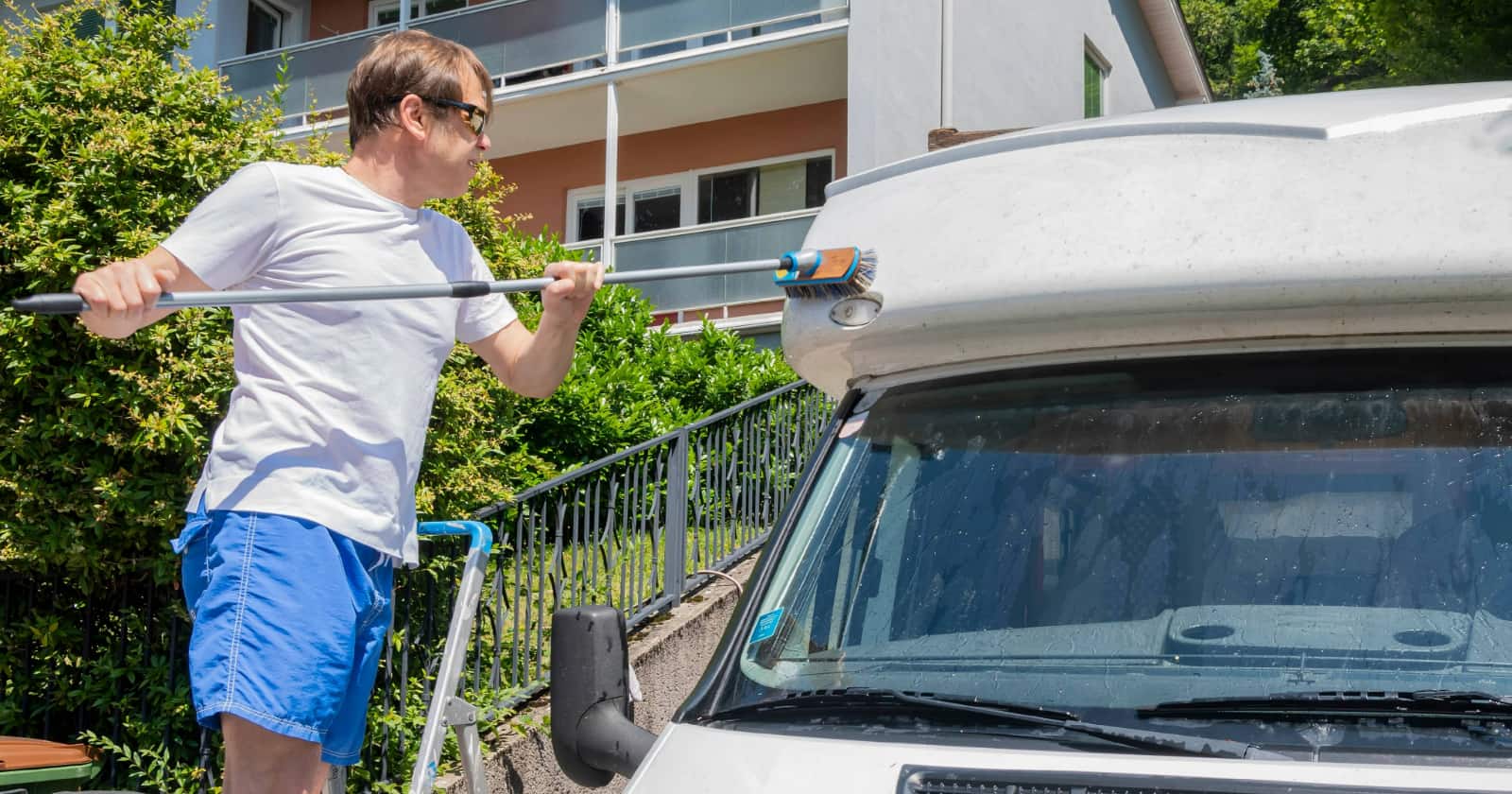
What To Do When Your RV Hot Water Smells Like Sulfur
When you think of a long, hot, relaxing shower, you probably don’t think of your RV. Many times, even with limited hot water, a quick shower can be made unbearable by the harsh smell of sulfur.
A distinctive, sharp smell, often compared to the smell of rotten eggs, sulfur is impossible to ignore. Add this smell to the small space of an RV and you have a very unpleasant space.
It can seem like a mystery for RVers where this smell is coming from and how to get rid of it. Thankfully, the answer to both of these questions is easy.
Why does the hot water in my RV smell bad?
What could possibly produce that awful smell inside your RV? The smell of sulfur seems more fitting for some large gas plant than your RV.
If the smell is isolated to your hot water, it is most likely an issue originating in the water heater. If you have it from both cold and hot water, you are more likely to have an issue with the incoming water source or a filtration issue.
The rotten egg smell of sulfur is almost always associated with your RV water heater. It is the result of a chemical reaction taking place inside the water heater. The result of this reaction is the production of hydrogen sulfide, and as a result, the rotten egg smell.
Sulfate-reducing bacteria, also called SRB, are bacteria that develop and thrive in hot water. The bacteria create hydrogen sulfide as waste, and this gives off a rotten egg smell. Many water heaters use anode rods to help with corrosion, magnesium being a common type. This magnesium releases free electrons as it corrodes, which in turn feeds the sulfate-reducing bacteria.
Switching to an aluminum-zinc anode rod may help reduce the chances of getting the smell, as it is a less reactive material.
How to get rid of the rotten egg smell
The good news is RV hot water smells can be prevented from ever happening with regular RV maintenance. However, even with maintenance, issues can arise, and luckily, the fix is simple. RV hot water smells should never prevent you from using your RV.
That sulfur smell is coming from the water heater and that’s where the fix happens as well. Most RVers have drained, flushed, and refilled their water heaters as part of their winterizing and de-winterizing schedule.
Doing this an extra time or two throughout the season can greatly reduce the chances of you having to deal with this awful smell. In some cases, people simply drain and refill their water heater; however, this is not sufficient to prevent hydrogen sulfate from developing.
The key is a proper flush and treatment of the tank to prevent and/or remove the elements that cause the smell. RV water heater tanks are made of either porcelain/enamel-lined steel or aluminum. Neither of these materials rust, but they can corrode and react to different things.
Your aluminum tanks won’t have an anode rod to replace, but the flush process is the same otherwise.
1. Drain the tank
The first step is to shut off the water supply to the RV. Water tanks are under pressure, so it is important to release this pressure. There is a pressure release valve located near the drain behind the access panel. Opening an RV hot water tap inside the RV will also remove the pressure.
With the pressure released, the drain plug can be removed to fully drain the tank. In some cases, the anode rod will be attached to the drain plug. Replacing a used anode rod with a new one will help with future problems.
Some electronics are present in close proximity to the drain and pressure release valve, so be careful not to get them wet.
2. Flush the tank
With the tank empty, it’s important to do a good backflush to remove any loose debris and clean the tank. Simply draining the contaminated water and refilling likely won’t help you.
Flush wands are available for cheap and make the job easy. Flushing will remove any debris in the tank and can forewarn you of possible tank issues. Any rust or pieces of the ceramic coating being flushed out could mean your tank needs replacing.
With the tank flushed, you can now treat the tank to assist with ridding it of the smell. Tank treatments are available for this purpose; however, there are home remedies that work well. Vinegar is the go-to for water heater tank cleaning and works well to neutralize smells.
3. Refill the tank
After a good flush and cleaning, you can refill your system. Remember to replace the anode rod if you have one, and you should be good to go!
If you still have a smell after running your RV hot water, you may have to repeat the process. Spend the extra time when you have the tank drained the first time to flush and treat, then repeat multiple times to avoid having to start over.
An RV filled with the smell of rotten eggs is not how you want to remember your trip. Routine maintenance and the know-how to eliminate water heater odors when they arise will keep your RV fresh and comfortable for any length of stay.
Make sure you keep track of all your RV maintenance and repairs with an online tool such as RV LIFE Maintenance. Not only can you keep all of your documents in one place, but you’ll also receive timely reminders when maintenance is due to help you avoid costly repairs and potentially serious accidents.
Continue reading:



